
Author: mfnnews
Timing Matters
Just a bit more than a week ago, it feels much longer than that so I was pleased when I checked the date, I compared the current Iranian regime with some of the great mass killers of history. I ended that post saying, “But make no mistake, this is no longer a matter of foreign policy – this is a matter of morality, of standing for what is right in the world.” Not long after I wrote that President Trump said the killing had stopped and Iran has not been much discussed since. It is my prayer that this silence and lack of action is strategic and not simply pragmatic.
The post Timing Matters appeared first on The Hugh Hewitt Show.
‘Sparkle Beach Ken’ Is Too Kind To Gavin Newsom
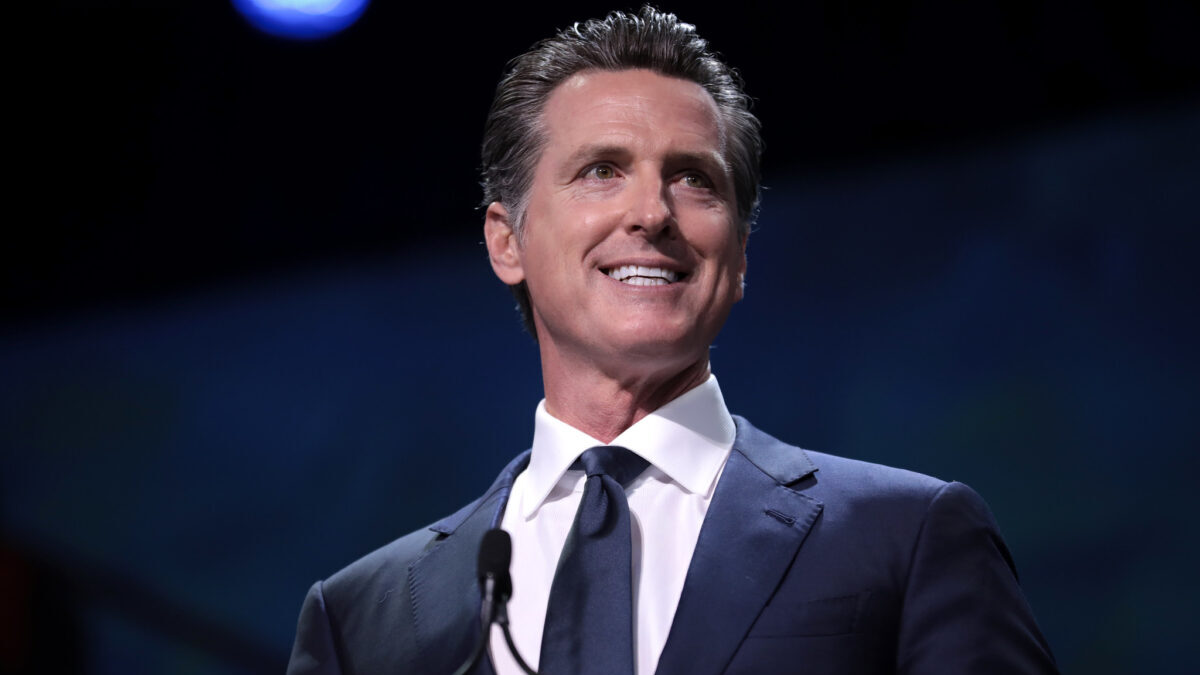
 The California governor correctly figures that if he stays on offense, his own dismal record will be ignored — even if that offense is odd.
The California governor correctly figures that if he stays on offense, his own dismal record will be ignored — even if that offense is odd.
Abortion Abortion pills Blaze Media Dobbs v. jackson women's health organization Opinion & analysis Roe v. wade
How pro-life groups are misleading you on abortion numbers
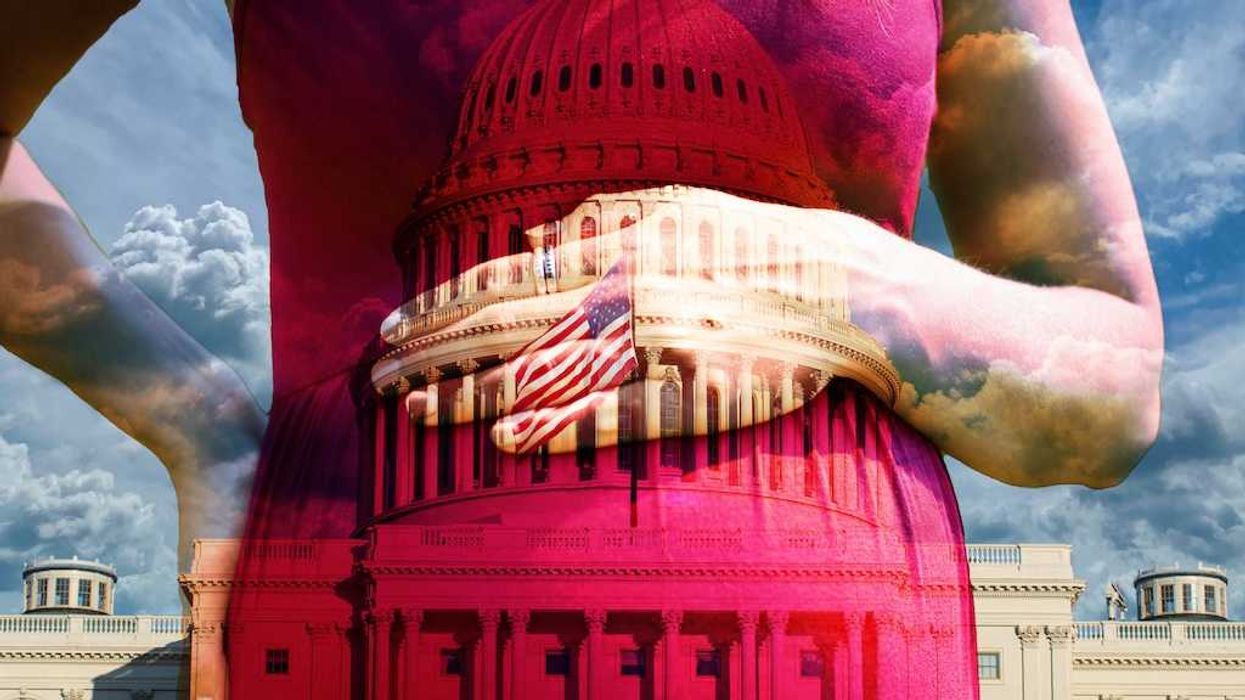
Since Roe v. Wade was overturned nearly four years ago, countless pro-life organizations have pushed new regulations on abortion. Many of those same groups have rushed to declare victory, claiming that conservative states are now “abortion-free.”
But when pro-life organizations declare any state “abortion-free,” they celebrate a victory that does not exist — and drastically overstate the impact of pro-life laws.
The preborn babies murdered under the cover of our laws deserve more than semantic victories. They deserve equal protection.
These claims don’t just mislead. They undermine the cause these organizations claim to champion.
Exaggerating victories
The claim that some states are “abortion-free” isn’t rare. It has become standard messaging.
Students for Life published a map three years ago declaring that 14 states are now “abortion-free.” Frank Pavone, who leads Priests for Life, has made the same claim about Mississippi. National Right to Life called Kentucky “abortion-free” as recently as last summer. LifeNews has become notorious for amplifying inflated or misleading abortion claims from pro-life groups at the state level.
These declarations suggest abortion has been eliminated in these states. The reality says otherwise.
Pro-life leaders do not make clear that in every state labeled “abortion-free,” abortions remain legal for women who want to kill their preborn babies.
Many conservative states shut down abortion clinics and imposed penalties on providers. At the same time, those states wrote explicit exemptions into law protecting women from prosecution for willfully obtaining abortions.
That wasn’t a mistake. Pro-life organizations crafted and promoted that policy.
Self-induced abortions
Legal immunity for women who murder their preborn babies created a massive loophole. It also opened the door to a surge in self-induced abortions.
Women in “abortion-free” states can order abortion pills online from telehealth providers operating under shield laws in blue states or from overseas providers.
In many cases, it remains perfectly legal to order these pills, possess them, and use them at home. The scale of this practice — even in conservative states — is staggering.
Consider Kentucky, which National Right to Life called “abortion-free.”
In Kentucky, more than 2,800 women in 2024 received mail-order abortion pills through telehealth providers alone, according to data from the Society of Family Planning.
That does not include the more than 4,300 Kentucky women who traveled to other states for abortions in 2024, according to the Guttmacher Institute. It also does not capture self-induced abortions outside the formal medical system.
Kentucky is not an outlier.
RELATED: How a pro-life law in Kentucky lets mothers get away with murder
 Carl Lokko via iStock/Getty Images
Carl Lokko via iStock/Getty Images
When all available data is considered, the 14 conservative states that have banned or mostly banned abortion — the same states pro-life groups often call “abortion-free” — saw at least 250,000 preborn babies murdered in 2024.
That number represents a sharp increase from the 181,000 abortions recorded in those states in 2019.
In other words, pro-life laws have not created states with fewer abortions. They have created states where abortion has shifted away from clinics and toward self-induced abortions at home — abortions that remain legal for the mother who commits them.
How can abortion increase while pro-life organizations claim success? Because many have misrepresented what they mean by “abortion-free.”
When these groups say “abortion-free,” they mean abortion clinics have closed. They do not mean abortions have stopped. It’s like calling a city “crime-free” because the district attorney refuses to prosecute criminals. The semantics conceal the reality.
Opposing abolition
Even more troubling, major pro-life organizations often oppose the bills that would actually abolish abortion.
When lawmakers introduce equal protection bills — proposals that would make abortion illegal for everyone, including pregnant mothers — pro-life organizations often mobilize against them.
This has happened dozens of times across the country. The reasoning stays consistent: Pro-life groups insist women are victims of abortion and should not face legal consequences, even when they deliberately order abortion pills and self-induce abortions at home.
When pro-life groups oppose equal protection bills and then claim their states are “abortion-free,” they don’t merely exaggerate. They sabotage.
Everyday anti-abortion Americans hear “abortion-free” and assume the fight is over. Activism slows. Political pressure fades. Donations and support shift elsewhere. Meanwhile organizations that should be pressing for equal protection instead suppress the only laws that would actually end abortion.
In the meantime, abortion continues unabated — simply moved from clinics to living rooms.
The pro-life establishment has redefined victory to fit what it has achieved, not what it claims to seek. It has declared victory over a substitute target — abortion clinics — while the killing of preborn children continues through abortion pills and interstate travel.
RELATED: Why the pro-life movement fails without a Christian worldview
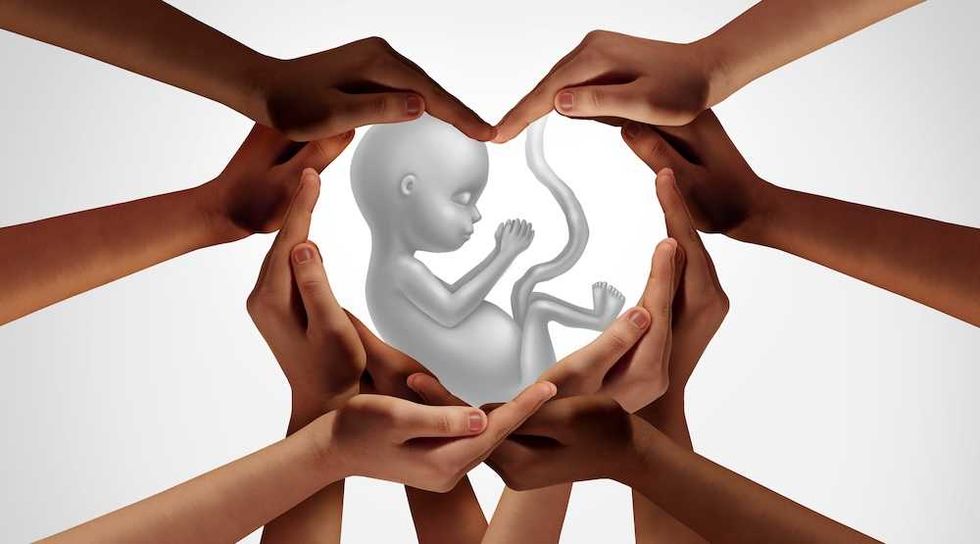 wildpixel via iStock/Getty Images
wildpixel via iStock/Getty Images
Demanding honesty
Americans who oppose abortion deserve honesty from the organizations claiming to represent them.
If abortion can still be performed legally in a state through mail-order pills, that state is not “abortion-free.” If abortion numbers rise rather than fall, victory has not arrived. If pro-life groups oppose laws that would make abortion illegal for everyone, they owe the public an explanation.
Abolishing abortion requires equal protection under the law: making the killing of any human being illegal for everyone, without exception or compromise.
Until major pro-life organizations support that principle, their claims of creating “abortion-free” states remain not just premature but dishonest.
The preborn babies murdered under the cover of our laws deserve more than semantic victories. They deserve equal protection — and Americans who oppose abortion deserve leaders honest enough to admit when that goal remains unmet.
Cuba next? Trump admin eying possible regime change after Maduro arrest: Report
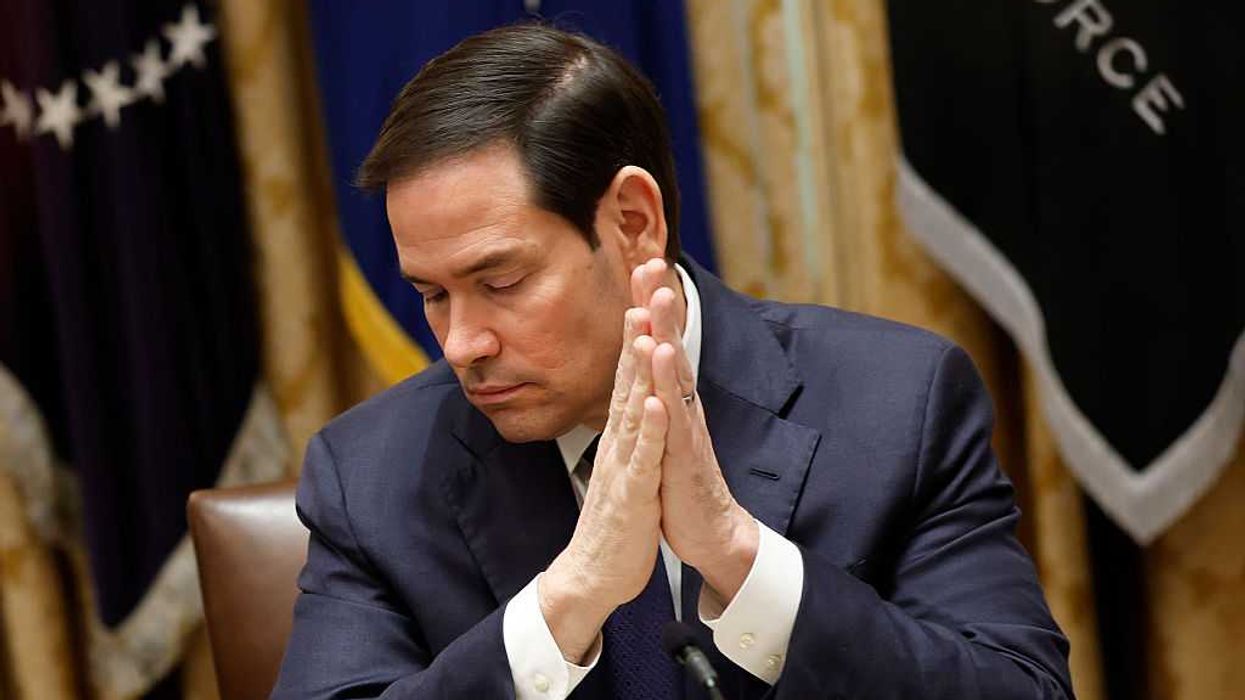
The Trump administration indicated in its National Security Strategy that “after years of neglect, the United States will reassert and enforce the Monroe Doctrine to restore American preeminence in the Western Hemisphere.”
Making abundantly clear to all that this was not empty rhetoric, the U.S. kicked off 2026 by militarily deposing Venezuelan dictator Nicolás Maduro.
Maduro was the first leftist dictator removed from power this year, but he may not be the last.
Sources familiar with the matter told the Wall Street Journal that now with a blueprint for surgical governmental restructures in the region, the Trump administration is searching for well-placed insiders in Cuba who could help oust the island nation’s communist regime by the end of the year.
‘I strongly suggest they make a deal, BEFORE IT IS TOO LATE.’
That strategy appears, after all, to have worked in Caracas, Venezuela, where an asset within Maduro’s inner circle furnished American intelligence personnel with critical information about the leftist leader’s habits, travels, and whereabouts, according to administration officials.
It’s unclear if that asset was Maduro’s vice president, now acting President Delcy Rodríguez, whom four sources familiar with the discussions told the Guardian signaled a willingness to cooperate with the Trump administration ahead of the military extraction.
RELATED: The truth behind Trump’s Venezuela plan: It’s not about Maduro at all
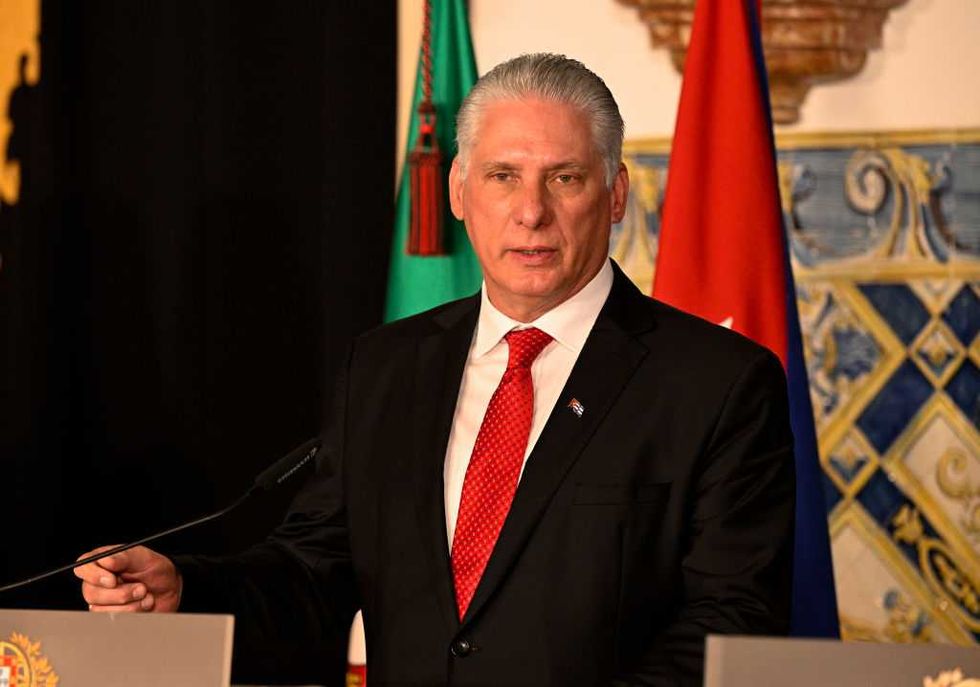 Photo by Horacio Villalobos#Corbis/Corbis via Getty Images
Photo by Horacio Villalobos#Corbis/Corbis via Getty Images
One U.S. official told the Journal that in recent meetings with Cuban exiles and civic groups, Trump administration officials have brainstormed possible individuals within the current Cuban regime who have an appetite for change and might want to make a deal.
The sense is that the time is ripe for a shakeup in the Stalinist island nation in light of its economic instability and loss of a key ally in Caracas.
Secretary of State Marco Rubio, the son of Cuban immigrants, said earlier this month, “I think Cuba is going to be something we’ll end up talking about, because Cuba is a failing nation right now, a very badly failing nation, and we want to help the people.”
“If I lived in Havana, and I was in the government, I’d be concerned,” added Rubio.
Cuba — which has suffered rolling blackouts in recent months and years — has long relied on Venezuela for subsidized oil, which has made up around 70% of its total oil imports.
In the wake of Maduro’s removal, Pavel Vidal, a former Cuban central bank economist who teaches at Javeriana University, told NBC News, “If oil supply were to cease entirely, the Cuban economy would grind to a halt.”
Senior U.S. officials told the Journal that the U.S. plans to further undermine the Cuban regime by restricting its access to Venezuelan oil.
“Cuba lived, for many years, on large amounts of OIL and MONEY from Venezuela,” Trump noted in a Truth Social post on Jan. 11. “THERE WILL BE NO MORE OIL OR MONEY GOING TO CUBA — ZERO! I strongly suggest they make a deal, BEFORE IT IS TOO LATE.”
The State Department said in a statement that it is in America’s national security interests for Cuba “to be competently run by a democratic government and to refuse to host our adversaries’ military and intelligence services.”
Rubio made a point of noting last week that the Cuban regime was “illegitimate.”
Like Blaze News? Bypass the censors, sign up for our newsletters, and get stories like this direct to your inbox. Sign up here!
‘Flagrant violation’: GOP lawmaker grills Jack Smith for ‘spying’ on former House speaker
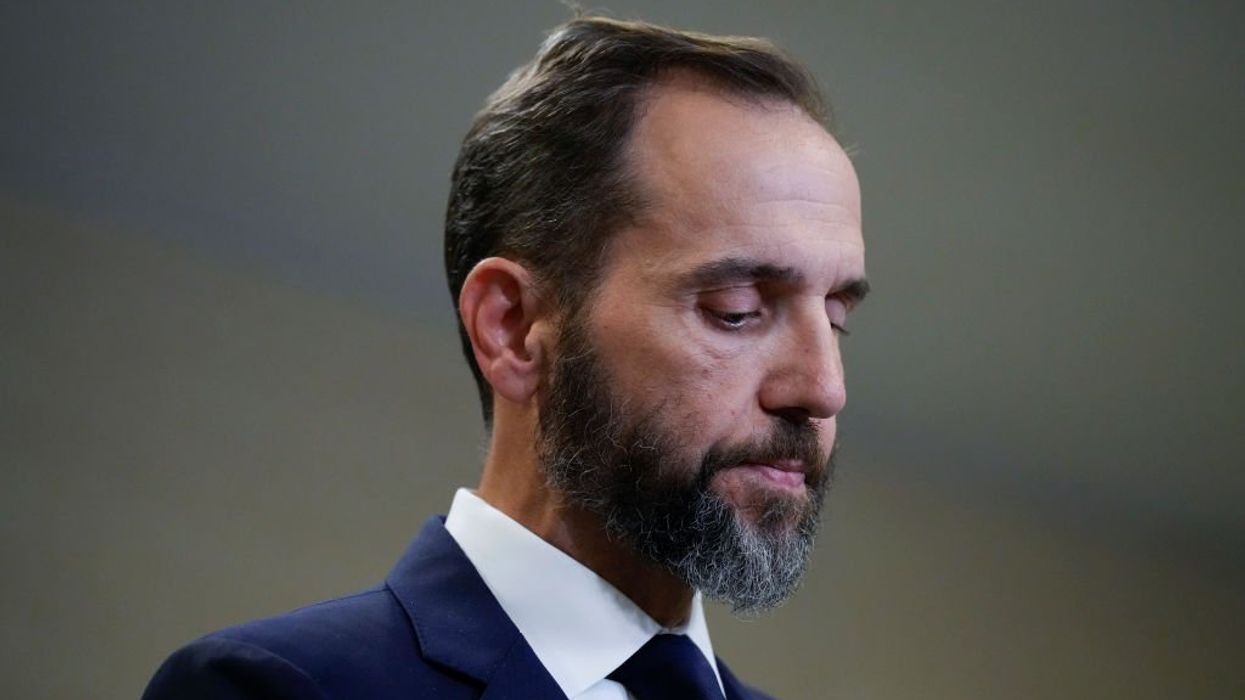
Rep. Brandon Gill (R-Texas) confronted ex-special counsel Jack Smith during a House committee hearing, accusing him and the Justice Department of secretly surveilling members of Congress and stomping on constitutional protections while investigating President Donald Trump.
Gill pressed Smith on his office using secret subpoenas and nondisclosure orders to obtain phone “toll records” from lawmakers, including then-Speaker of the House Kevin McCarthy (R-Calif.), without notifying them or the public.
‘Nobody’s going to sue. … So who cares? We’re going to do it anyway.’
“In January of 2023, did you subpoena then-Speaker of the House Kevin McCarthy’s toll records?” Gill asked.
“Yes, sir, we did,” Smith replied.
RELATED: GOP senator to sue Jack Smith after his lawyers try gaslighting on Biden FBI surveillance
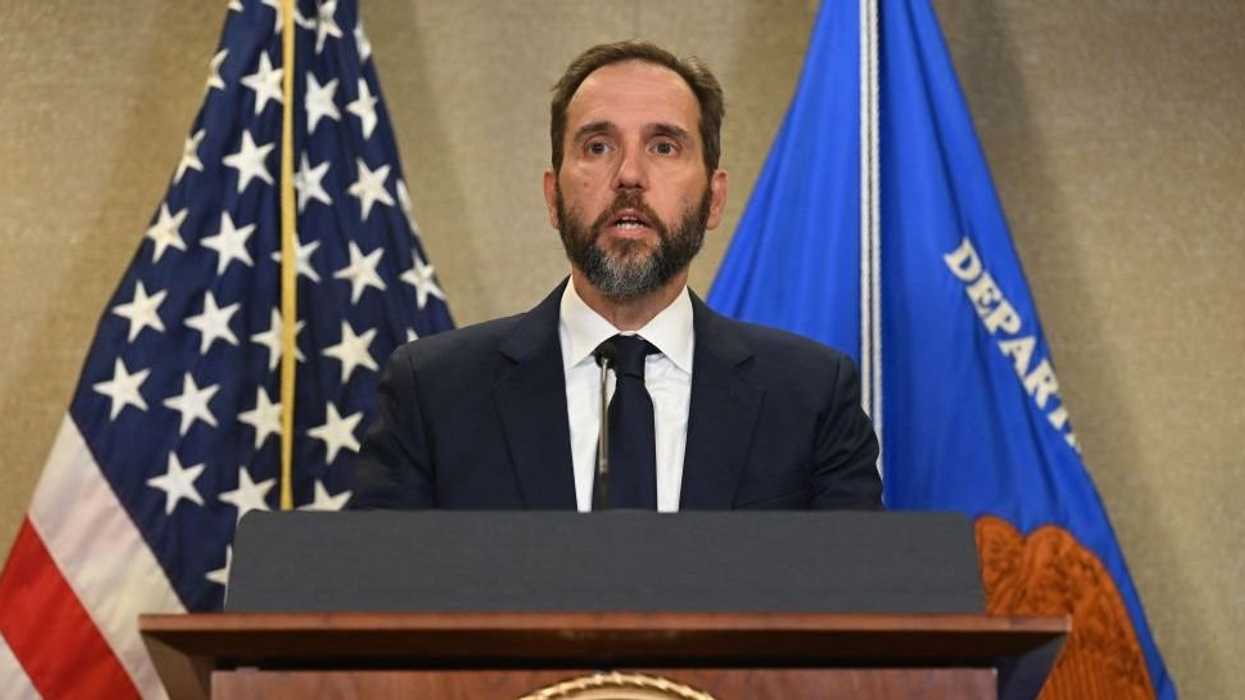 SAUL LOEB/AFP via Getty Images
SAUL LOEB/AFP via Getty Images
Gill pushed back, claiming Smith abused executive power to secretly collect phone data on Republican leadership.
“Collecting months’ worth of phone data on the Republican speaker of the House — the leader of the opposition — right after he got sworn in as speaker, all around the time of a major vote — that sounds like a flagrant violation of the Speech or Debate Clause to me,” Gill said.
The confrontation ramped up as Gill questioned Smith about the nondisclosure orders used to prevent McCarthy from learning that his records had been subpoenaed.
“At the time you secured those nondisclosure orders, was Speaker McCarthy a flight risk?” Gill asked.
“He was not,” Smith answered.
“Then why did your nondisclosure order refer to him as a flight risk?” Gill pressed. Gill then cited language in the court filing stating that disclosure could result in “flight from prosecution.”
“You think the speaker of the House is … going to hop on a plane and leave the country?” Gill asked.
“No,” Smith said, arguing that the language was not meant to apply personally to McCarthy but to general investigative risks.
Gill rejected that explanation.
RELATED: House Republican seeks criminal investigation into Jack Smith’s alleged surveillance scheme
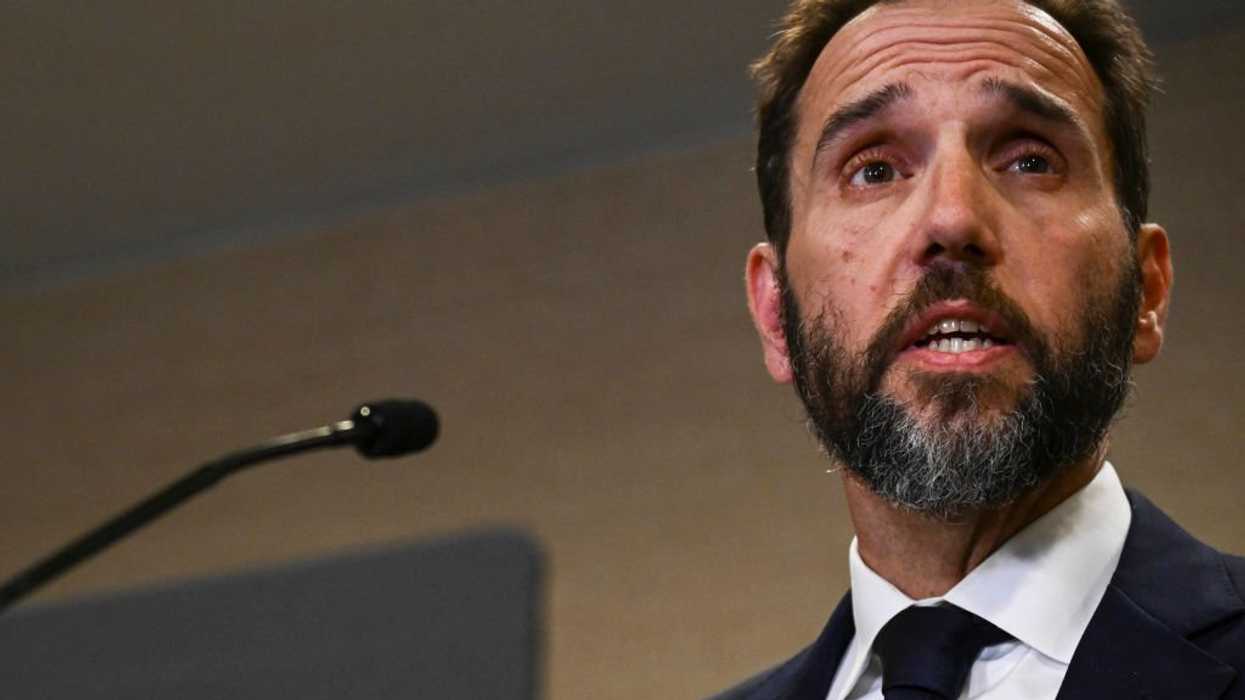 Photo by Ricky Carioti/Washington Post/Getty Images
Photo by Ricky Carioti/Washington Post/Getty Images
“This is clearly in reference to Speaker McCarthy,” Gill said. “You were using clearly false information to secure a nondisclosure order to hide from Speaker McCarthy and from the American people the fact that you were spying on his toll records.”
Gill also revealed that Smith’s office issued additional secret subpoenas in May 2023 for the toll records of nine U.S. senators and another House member, along with more nondisclosure orders.
“So again, nobody would know what you were doing,” Gill said. “The senators wouldn’t. The representatives wouldn’t. The American people wouldn’t.”
Gill then read from an internal DOJ email warning of “litigation risk” tied to compelling disclosure of lawmakers’ phone records due to Speech or Debate Clause concerns.
“As you are aware, there are some litigation risks regarding whether compelled disclosure of toll records of a member’s legislative calls violates the Speech or Debate Clause,” Gill read.
Gill emphasized another line from the same analysis, saying that because of “the low likelihood that any of the members listed below would be charged, the litigation risk should be minimal here.”
“In other words,” Gill said, “You’re using a novel legal theory. … You’re not charging any of these members. Nobody’s going to know about it because you issued NDOs. Nobody’s going to sue. … So who cares? We’re going to do it anyway.”
“You walked all over the Constitution throughout this entire process,” Gill added.
“It’s absolutely disgraceful.”
Like Blaze News? Bypass the censors, sign up for our newsletters, and get stories like this direct to your inbox. Sign up here!
’28 Years Later: The Bone Temple’ brings new life to horror franchise
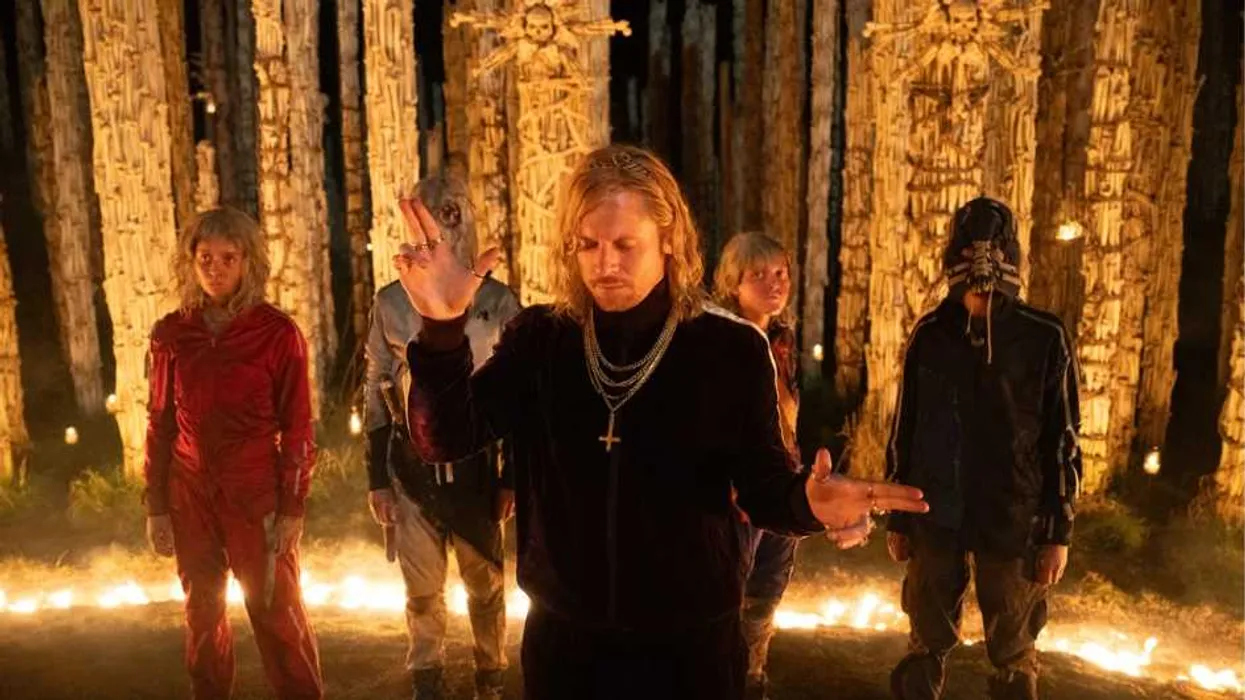
Like the post-apocalyptic Britain of the “28 Days Later” franchise, Hollywood has become a wasteland, teeming with the stripped-down, lethally efficient shells of once-vital creations. Nostalgia-driven reboots swarm the multiplex, satisfying audience cravings for familiarity and studio appetites for certainty — even as they leave the surrounding creative landscape increasingly barren.
This year’s “28 Years Later” could just as easily have been another of these living-dead productions. While previous installment “28 Weeks Later” (2007) — made with nominal participation from the original creative team — delivered competent scares, it hardly cried out for a follow-up.
The movie is littered with British cultural references — decontextualized and repurposed by survivors struggling to find meaning in a world they no longer understand.
But the return of director Danny Boyle and writer Alex Garland proved worth the wait. “28 Years Later” demonstrated that this universe could still surprise, ending with a tantalizingly bizarre coda in which our hero Spike is rescued by Sir Lord Jimmy Crystal (Jack O’Connell) and his blonde-wigged, track-suited minions. Clearly the infected are not the only menace stalking the British countryside.
Charity cases
“28 Years Later: The Bone Temple” picks up right after this moment, confirming our suspicions that Spike’s troubles have just begun. After a gruesome kind of initiation, Spike is forcibly enlisted as one the “Jimmys,” who turn out to be a gang of satanic killers. Led by Jimmy Crystal, who believes himself to be the son of “Old Nick,” they prowl the land inflicting gruesome ritualized violence — which they call “charity” — on those unfortunate enough to meet them.
While Garland returns as screenwriter, Boyle (who stays on as producer) cedes the director’s chair to Nia DaCosta, whose striking use of lingering close-ups and tightly framed compositions inject the film with a raw, anarchic energy. The result is a legacy sequel that both pays homage to its origins and reimagines them — one that weaves graphic violence together with incisive observations on culture, faith, and survival in a world irreversibly altered by catastrophe.
Doctor Sleep
Many of those observations come straight from the kindly and philosophical Dr. Ian Kelson (Ralph Fiennes), an eccentric recluse who provided shelter for runaway Spike and his dying mother in “28 Years Later.” In this grisly sequel, the iodine-covered, blowdart-wielding former physician is searching for a cure to the rage virus, using an infected “alpha” zombie — whom he names Samson — as his pet project.
He also continues work on the titular bone temple, a memorial to the outbreak’s victims, until his optimism and ingenuity is tested by the new and horrifying human adversary we met in the beginning.
While Boyle’s 2002 film focused on urban chaos, this installment widens its lens, exploring the virus’ impact across the countryside while delving into deeper philosophical terrain. Beneath the skin-flaying, stabbings, “Mortal Kombat”-style spine removals, and Iron Maiden needle drops lies a poignant meditation on a once-beautiful country sliding into social and spiritual decay.
This is England
DaCosta, an American director, deftly preserves the distinctly English identity of the original films. The movie is littered with British cultural references — decontextualized and repurposed by survivors struggling to find meaning in a world they no longer understand.
The Jimmys, with their blonde wigs, tracksuits, and gold jewelry, are intentionally modeled after Jimmy Savile, one of Britain’s most notorious sex offenders. In this universe — where society collapsed in 2002, years before Savile’s real-world crimes were exposed — the cult reveres him as a benevolent, almost mythical figure. Their so-called acts of “charity” grotesquely invert Savile’s public image of philanthropy, turning it into a rationale for cruelty and sadism.
The dynamic between Sir Jimmy and Kelson is magnetic. O’Connell and Fiennes deliver outstanding performances, moving seamlessly between surrealism and melancholy. Some of the film’s most compelling moments occur when these two simply share the screen in conversation.
Sir Jimmy and Kelson represent competing philosophies of survival. In desperate times, humanity creates belief systems — sometimes as tools of power, sometimes as mechanisms of self-preservation. Through these two figures, Garland weaves a thoughtful exploration of evil, faith, and meaning.
RELATED: ‘28 Years Later’: Brutal, bewildering, and unabashedly British
 Tim P. Whitby/Getty Images
Tim P. Whitby/Getty Images
Feral faith
Religious symbolism runs throughout the film. The Jimmys repurpose Savile’s catchphrase “Howzat!” as a ritual chant — stripped of its original meaning and reconstituted as a signifier of violence. Kelson, meanwhile, assumes the role of a secular creator. His humanist liturgy centers on music and literature, which function as sacred texts connecting him to the past and preserving his sanity.
Samson’s transformation becomes an allegory for rebirth: emerging from the hell of infection into renewal. Where the biblical Adam becomes aware of his nakedness after eating from the tree of knowledge, Samson’s recovery inspires modesty as he clothes himself with memories of his return. It is the Fall in reverse — self-awareness as ascension, rebirth without grace.
“The Bone Temple” manages to inject genuine life into a franchise nearly 25 years old. I may regret saying this, but I am genuinely curious to see where the story goes next — especially with Boyle returning to direct the third and final installment. The film’s closing scene teases the return of a familiar face, and John Murphy’s fuzzed-out guitar theme suggests that hope remains, for both the survivors and the fans.
Trump’s primary endorsements are sabotaging his own agenda
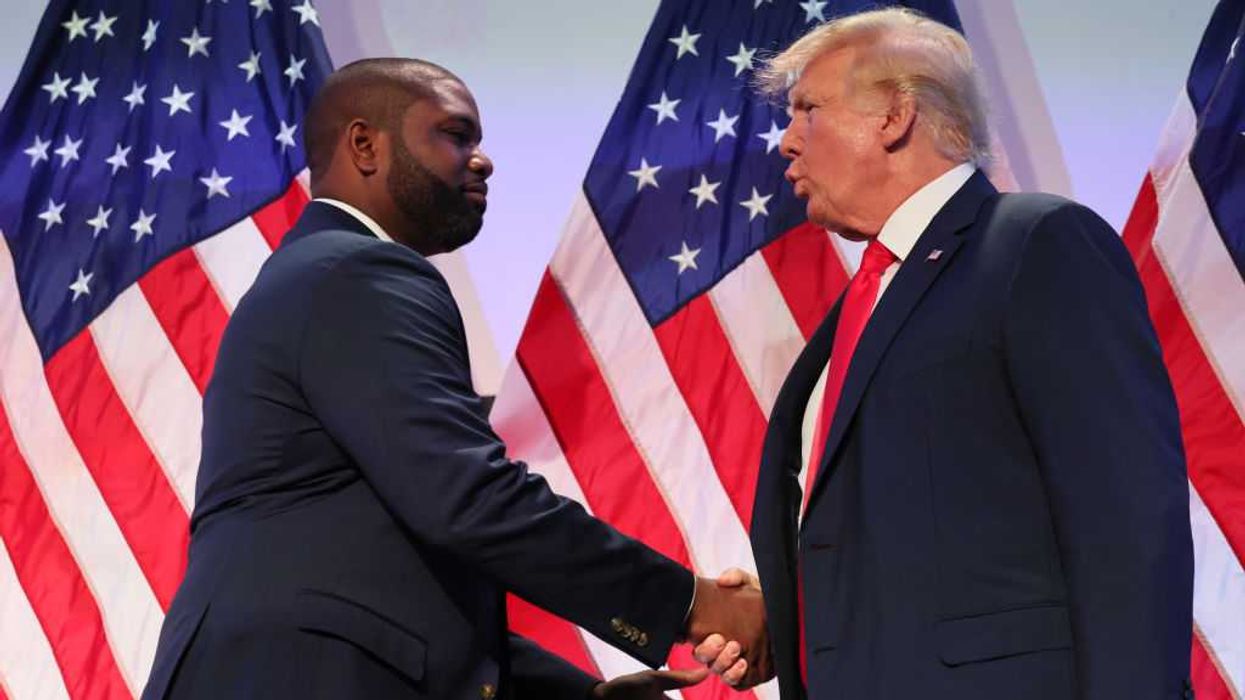
Imagine what the Republican Party would have looked like had President Trump been endorsing conservative reformers down-ballot rather than milquetoast RINOs backed by special interests for five consecutive cycles.
In 2016, President Trump stormed the corporatist castle of the country-club GOP. But over the next five election cycles, he pulled up the rope ladder behind him. He left the reinforcements outside the gates, which crushed his ability to deliver on his promises in his first term. It also allowed generic Republicans to ride his brand while drifting away from his original America First message.
Conservatives understand that competition improves a product. When Trump protects incumbents from primary pressure, he guarantees that the party never improves.
Now he is making the same mistake in his second term by backing status-quo, corporatist Republicans in key races.
2026 is do or die
The opening months of 2026 should be the Super Bowl of primaries for the right. Vulnerable establishment Republicans and open seats sit on the board across solid red states — for Senate and governor.
Even if Republicans struggle in swing states, Trump could still lock in a generation of red-state power by backing grassroots conservatives in open seats and insurgents challenging weak incumbents.
Instead, he keeps yanking the rug out from under his own base.
Louisiana bait and switch
Over the weekend, the president endorsed Rep. Julia Letlow (R-La.) for U.S. Senate in Louisiana. Until now, Trump has refused to back conservatives against incumbents — except when he endorsed against Freedom Caucus Chairman Rep. Bob Good of Virginia in 2024.
So yes, Trump finally moved against Sen. Bill Cassidy, a pro-COVID-vaccine liberal wasting a conservative seat. But he waited until more conservative candidates — state Treasurer John Fleming, state Sen. Blake Miguez, and state Rep. Julie Emerson — softened Cassidy up. Then Trump picked a challenger who matches Cassidy’s worldview in a prettier package.
Letlow sides with Cassidy on government-run health care and the COVID vaccines. She also voted against penalizing FDA officials for unlawfully expanding access to mifepristone. Trump carried Louisiana by 22 points and won 57 of 64 parishes. He could have used his clout to elect a conservative stalwart like Miguez. Instead, he chose another version of the same problem.
RELATED: Voters won’t buy ‘freedom in Iran’ while Minneapolis goes lawless
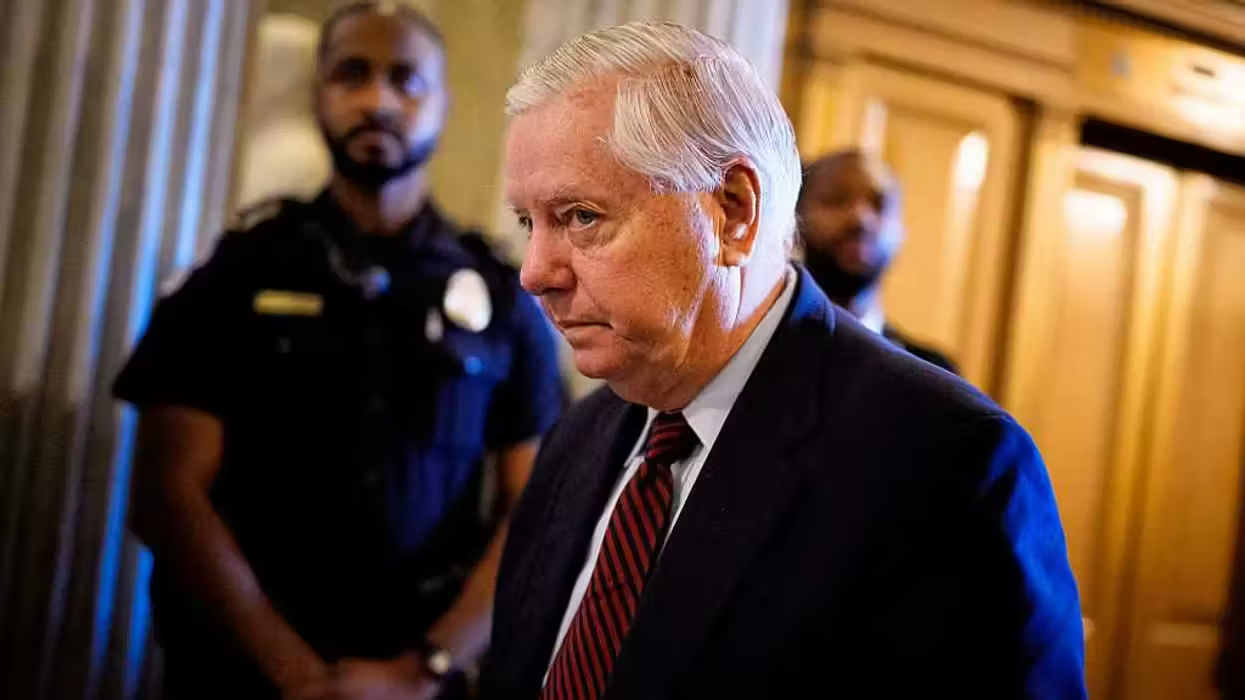 Photo by Andrew Harnik/Getty Images
Photo by Andrew Harnik/Getty Images
Governors matter now
If Democrats regain Washington, governors become the last real barrier against federal abuse. Red-state governors will matter more than ever, especially if Democrats install a weaponized Gavin Newsom-style agenda at the national level.
After Ron DeSantis turned Florida from swing state into the red-state model, Republicans should be building an entire bench of governors who make even DeSantis look tame. But Trump’s endorsement habits keep locking in mediocrity. In Florida, he is backing Byron Donalds — a favorite of the legislative RINOs who fought DeSantis for years.
Fourteen governorships are up in states Republicans should win even in a rough year: Alabama, Alaska, Florida, Iowa, Idaho, Kansas, Nebraska, Ohio, Oklahoma, South Carolina, South Dakota, Tennessee, Texas, and Wyoming. Trump hasn’t made one bold, movement-building endorsement as he did with DeSantis in 2018. Instead, he has already pre-emptively endorsed Idaho Gov. Brad Little for a third term and Texas Gov. Greg Abbott for a fourth.
Texas betrayal rewarded
Trump has started interfering even in state legislative races. In Texas, Republicans cut a deal with Democrats and installed Dustin Burrows as speaker against the will of most of the party. Burrows rewarded them by handing committees to Democrats and killing conservative priorities.
When conservatives moved to defeat the traitors, Trump carpet-bombed the effort by endorsing Burrows and his lieutenants for re-election.
Conservatives understand that competition improves a product. Trump keeps canceling that competition. When he protects incumbents from primary pressure, he guarantees that the party never improves.
‘Secrets of Hotel 88’ teaser reaches over 10M views; stars promise rollercoaster of emotions

The teaser for the much-anticipated series “Secrets of Hotel 88” has already reached over 10 million views and counting following its release on Thursday!
Shayne Sava, Shanelle Agustin, Dave Bornea to star in ‘Magpakailanman’ episode ‘My Special Family’

Shayne Sava, Shanelle Agustin, and Dave Bornea are set to star in an upcoming “Magpakailanman” episode titled “My Special Family.”
search
categories
Archives
navigation
Recent posts
- ‘Sparkle Beach Ken’ Is Too Kind To Gavin Newsom January 23, 2026
- Timing Matters January 23, 2026
- Cuba next? Trump admin eying possible regime change after Maduro arrest: Report January 23, 2026
- How pro-life groups are misleading you on abortion numbers January 23, 2026
- ‘Flagrant violation’: GOP lawmaker grills Jack Smith for ‘spying’ on former House speaker January 23, 2026
- Trump’s primary endorsements are sabotaging his own agenda January 23, 2026
- ’28 Years Later: The Bone Temple’ brings new life to horror franchise January 23, 2026







